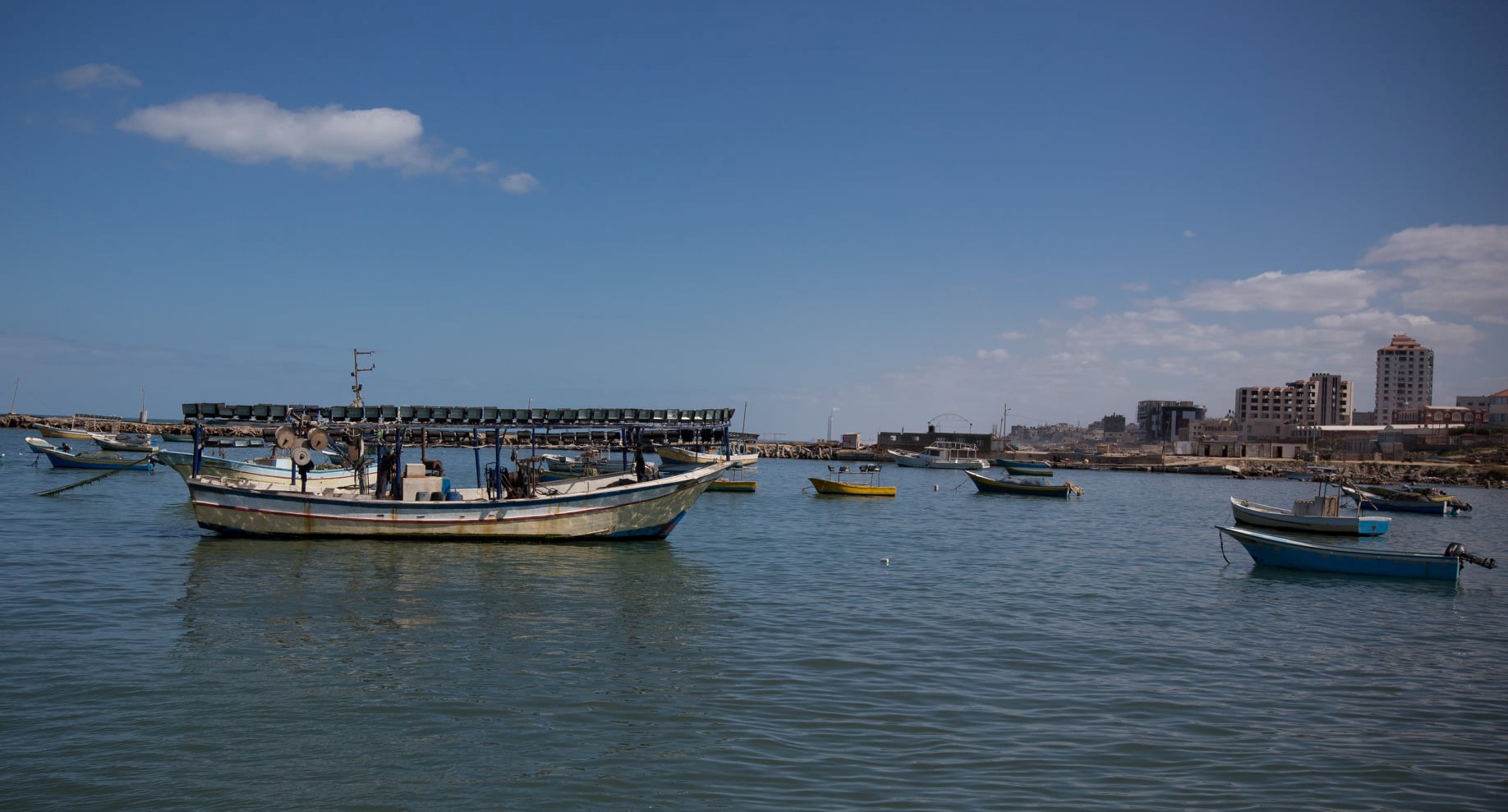On Tuesday, April 27, Israel’s Coordinator of Government Activities in the Territories (COGAT) announced it was lifting the total prohibition on Gaza’s fishermen from accessing the sea off the coastal enclave, thereby reversing the restrictions it implemented in two stages beginning only 48 hours earlier.
On Sunday, April 25, COGAT had reduced the Gaza “fishing zone” from 15 to nine nautical miles in response to the launching of three dozen rockets from Gaza towards Israel on late Thursday night and early Friday morning, April 22-23. On Monday, April 26, following a small number of additional missile launches, COGAT imposed a total ban on Gazans’ accessing the sea “until further notice,” thereby collectively punishing the entire fishing sector for actions by Palestinian militants over whom the former have no control.
According to Gisha, an Israeli NGO whose goal is to defend the freedom of movement of Palestinians, especially residents of Gaza, “Deliberate or indiscriminate fire on civilian population centers is a breach of international law and may be considered a war crime. However, Israel’s ban on access to the sea constitutes illegal collective punishment. Israel’s toying with the demarcation of the zone, including bans on access to sea, causes deliberate harm to one of Gaza’s most vulnerable economic sectors.”
Israel’s illicit policy of collective punishment harms thousands of people, fishermen and their families, who rely on access to sea for their livelihoods, as well as the rest of Gaza’s population and the local economy. The harm to Gaza residents is of particular concern, given that this is the month of Ramadan, with Gaza’s economy already nearing collapse due to coronavirus restrictions and the closure enforced by Israel since 2007.
Historically, Israel repeatedly imposes restrictions on Gaza’s “fishing zone” or entirely bans access to sea as a measure of collective punishment. In 2019, Israel reduced the fishing zone at least nine times as a measure of collective punishment, imposing a full maritime closure in four of these instances. This practice continued over the course of 2020. The fishing sector in Gaza is also beleaguered by Israeli restrictions on the entry of materials required to repair boats, and the violent enforcement methods used by Israel have greatly diminished this sector’s viability, forcing many residents of the coastal enclave to abandon it as a means of livelihood. According to the United Nations, the number of people working in the sector dropped from about 10,000 in 2000 to roughly 3,600 by early 2020. Most of those still working in fishing have no other choice, given Gaza’s unemployment rate of 43%.
Gisha’s field coordinator spoke with Nizar Ayash, Head of the Gaza Fishermen Association, who said, “Israel is continuing its practice of collective punishment against Gaza’s residents. The effects are not limited to fishermen and their families, but extend to everyone else whose livelihood depends on the normal functioning of the sector. The economic situation in Gaza is difficult enough as it is. The coronavirus is spreading, and Israel is just adding to our troubles by closing the sea.”
Israeli forces fired 55 warning shots at Gaza fishing boats that sailed too close to the perimeter fence in March, according to a report published last week by the UN Office for the Coordination of Humanitarian Affairs in the occupied Palestinian territories. Most of the altercations, it explained, occurred at sea; two fisherman were wounded by warning shots and their boats were damaged.
March’s toll was the lowest number of such incidents in four months: 75 warning shots were fired in December, 84 in January, and 58 in February. In November of last year, there were “only” 34 such incidents. “On March 7, an explosion occurred in a Palestinian boat off the coast of Khan Younis, resulting in the death of three fishermen, two brothers and a cousin, in circumstance[s] that remain unclear,” OCHA said.



